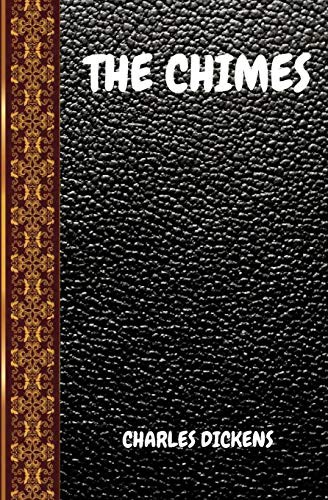Stephanie Jane recenzis THE CHIMES de Charles Dickens
Still very relevant to today
3 steloj
I never knew before that A Christmas Carol was actually the first of five seasonal novellas that Dickens wrote in the 1840s. I only found out this year because I left deciding upon my traditional Christmas Day Dickens until rather too late in December so searched his works by word count and up popped The Chimes, first published in 1844. This novella shares some similarities with A Christmas Carol. Both are strong social commentaries on the times and the vast gulf between rich and poor so, in that respect, The Chimes is a very modern novel too. It was easy to recognise Jacob Rees-Mogg's attitudes to the impoverished working class in the words of Alderman Cute and Filer. The Chimes also employs supernatural intervention as a means to encourage a character to change their whole outlook although, in this story, it is poor messenger runner Toby Veck who finds his …
I never knew before that A Christmas Carol was actually the first of five seasonal novellas that Dickens wrote in the 1840s. I only found out this year because I left deciding upon my traditional Christmas Day Dickens until rather too late in December so searched his works by word count and up popped The Chimes, first published in 1844. This novella shares some similarities with A Christmas Carol. Both are strong social commentaries on the times and the vast gulf between rich and poor so, in that respect, The Chimes is a very modern novel too. It was easy to recognise Jacob Rees-Mogg's attitudes to the impoverished working class in the words of Alderman Cute and Filer. The Chimes also employs supernatural intervention as a means to encourage a character to change their whole outlook although, in this story, it is poor messenger runner Toby Veck who finds his beliefs turned upside down. At the beginning of the tale he wonders whether it might be true that, despite working every possible hour of the day and on into the night, he and his daughter are destined to remain poor because they are bad people. Does poverty indicate intrinsic wickedness and weath determine goodness? A lecture from the Alderman and his stingy friends suggests this, but the goblins in the church bells have a different interpretation. Unfortunately Toby will need to die in order to hear them!
I could soon see why The Chimes is a far less well known novella. It has Dickens' usual strong, distinctive characterisations and vivid London setting, but the narrative itself is much weaker and is so wrapped up in long-winded speeches and florid descriptions that I missed a couple of key moments altogether - thank goodness for Wikipedia. I imagine this story would work far better as a spoken word piece or even a full-fledged play, separating the waffle from important elements. I'm still glad to have read the work, but it's not one of Dickens' best.

